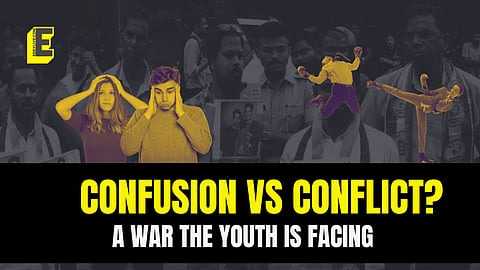

The attack in Pahalgam on April 22, 2025, wasn’t just another headline; it was a spark that set off a firestorm between India and Pakistan. As tensions escalated and reports of retaliation followed, life on both sides of the border changed.
Operation Sindoor was launched on May 8, 2025, to strike known terror camps across the border, and it amassed a lot of public support. But in response to this, Pakistan began Operation Bunyanun Marsoos on May 10, 2025, intensifying the already high tensions.
The escalation turned into a full-scale conflict, impacting the lives of civilians on both sides. Schools across border areas are shut down, exams are postponed, and the war has made it to everyone’s daily conversations and digital screens.
Amidst the war situation between both countries, another threat surfaced: misinformation.
As the war unfolded, fake videos and misleading content began to flood social media, confusing citizens and stirring panic.
For instance, everyone who is on social media has come across a post where we were asked to turn our locations off.
Well, if you did, it was one of the many fake news stories being circulated online, which went viral. The official communication wing of the government, Press Information Bureau (PIB), had to step in to debunk it.
In another instance, a fake video of missiles being fired on India by Pakistan through Multiple Rocket Launch Systems (MRLS) was amassing attention, crossing millions in views on various social media platforms. Again, it was PIB that cleared the air stating that the clip is actually from a video game and is nearly three years old, with no connection to the India-Pakistan military strike whatsoever.
Clearly, on social media, the war is on between truth and falsehood, and here, it looks like the youth are the victims, unable to distinguish one from the other. For the youth, this situation is personal, confusing and overwhelming.
To understand what they’re really going through, EdexLive interviewed a few students across India.
With the pace of traditional and authentic news being much slower than the fastest-finger-first social media, many rely on Instagram, Twitter and digital platforms for updates.
“I get my information from social media, press releases and news channels,” said Samiha Rana, a student from Dehradun. But as videos and memes flood timelines, it’s hard to tell what’s real and what’s not anymore.
“Every minute there’s a new video, and it’s not funny anymore,” Samiha adds, frustrated by how lightly some people are taking this situation.
Others, like Danika Khanna, from Delhi, admit social media plays a big role but cautions that “it can also amplify panic, rumours, and polarising narratives,” she says.
This confusion is growing, and so is the realisation that not everything they see is true.
Even worse, memes have taken over the narrative. What should be a national concern has now turned into shareable content. Some students believe this desensitises people and disrespects those on the frontlines.
“Sharing memes is just degrading our own countries,” said Varen Khullar, a student from Batala, Punjab.
There’s frustration at how quickly people forget the seriousness of the situation and treat it like a trend. Some feel that the generation is divided: one half treats this as a joke, and the rest are confused about what to believe in. The lines between awareness, insensitivity and misinformation are blurring.
Yet, despite all this, students still believe that they have a role to play.
“We might not be able to help directly, but knowing what’s going on in our nation and raising our voices matters,” said Varen. Others suggest the youth can support peace through cultural exchange and awareness.
There’s agreement that sharing news blindly without cross-checking makes things worse.
Samiha points out that mocking national issues not only disrespects the country but also hurts those who are defending us at the borders.
This war may have started with bullets, but now it is being fought on group chats, feeds and comment sections.
In times like these, information is power, but only if it’s true. Responsibility lies with every citizen, especially the youth, to think before sharing and question before believing. And in a war where every post can shape an opinion, finding the truth might be one of the most important battles of all.
